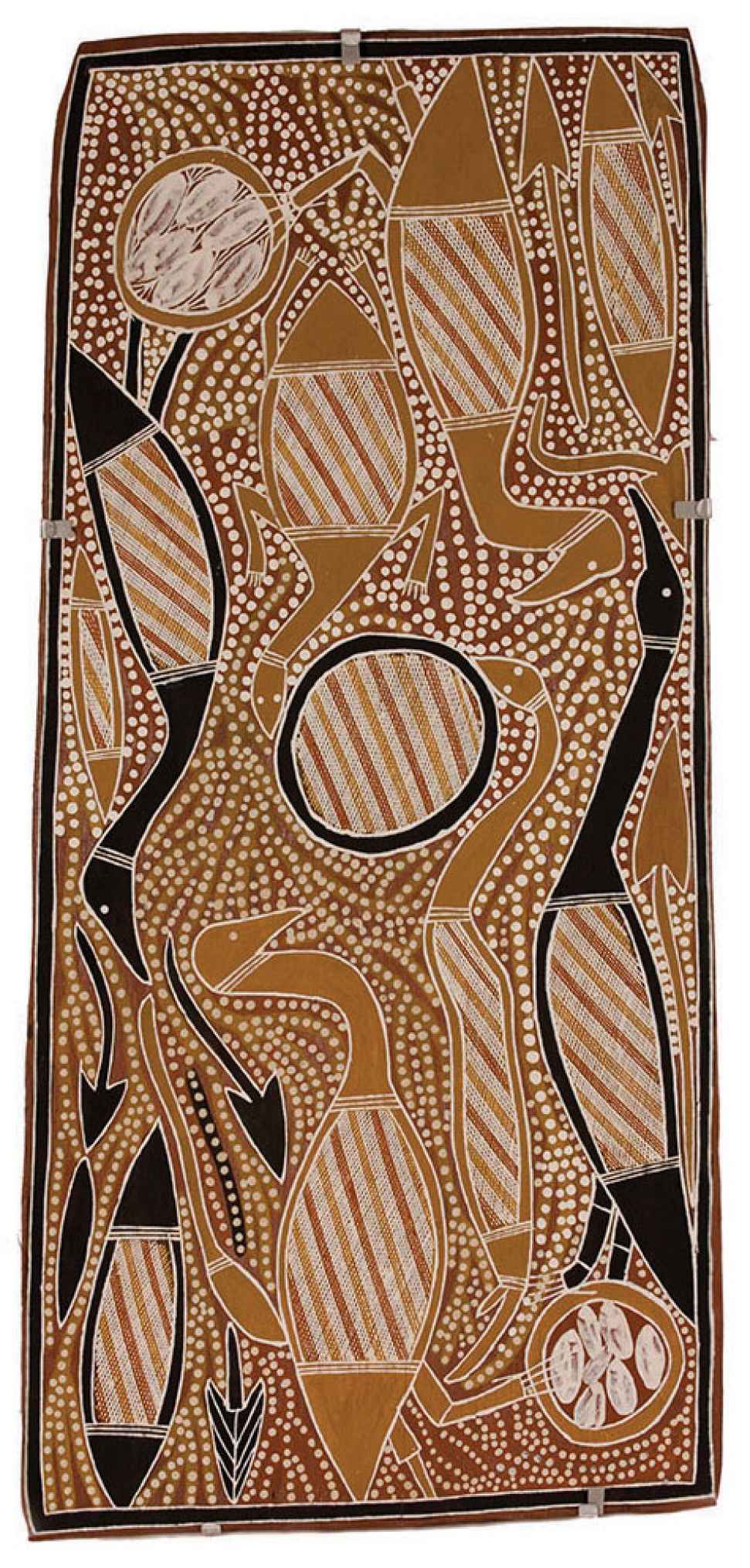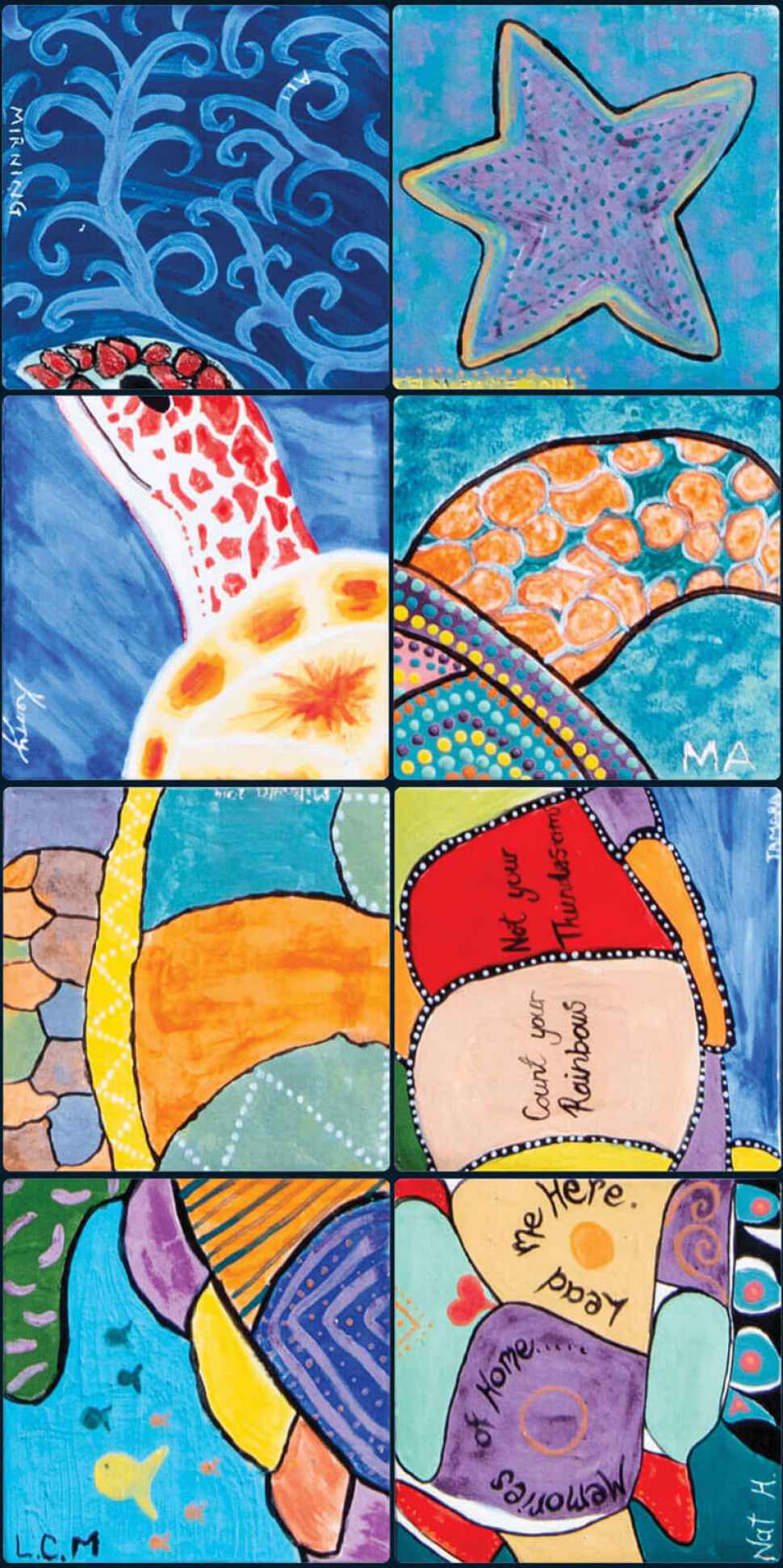Our vision for Reconciliation
Flinders University’s collective vision is to foster an environment that recognises and embraces Aboriginal and Torres Strait Islander peoples, knowledges and cultures. This vision for reconciliation is grounded in the concepts of togetherness, reciprocity, and respect.
Achieving this vision for reconciliation requires courage, generosity, integrity and truth-telling. Flinders University recognises that Indigenous1 people are the descendants of the first peoples of the Lands and Waters of Australia and have occupied, enjoyed, utilised and managed these Lands and Waters since time immemorial.2
We respect and recognise the long-held philosophies, knowledges, research, strengths and contributions of Aboriginal and Torres Strait Islander communities in this country. As a University community we commit to reconciliation as part of everyday practice and acknowledge the vital role it can play in building understanding and acceptance of our shared histories, as we work towards a shared future.
This Innovate Reconciliation Action Plan (RAP) is part of Flinders University’s ongoing work to increase Aboriginal and Torres Strait Islander community participation, retention and success in higher education and commits to celebrating Indigenous success and self determination.
This is a whole-of-University responsibility.

John Bulunbulun (Ganalbingu, Australian)
born 1946, Maningrida, Central Arnhem Land,
Northern Territory
died 2010, Darwin, Northern Territory
Untitled 1996
natural pigments on stringy bark
92.6 x 41.8 cm
Flinders University Art Museum Collection 3108
Image © John Bulunbulun /Licensed by
Aboriginal Artists Agency, 2019

Our business
Established in 1966, Flinders University was named after the European navigator Captain Matthew Flinders who, as part of the 1801-1803 Investigator Voyage circumnavigated Australia (Sydney to Sydney) accompanied by Kuring-gai man Bungaree from 1802-1803.
Undergraduate, postgraduate and research training courses are offered across six Colleges and online for some 26,000 students. The University has more than 5,000 international students from more than 90 countries. Bedford Park campus has on-site accommodation for 500 students.
Research strengths include biomedical and clinical sciences, culture, policy and society, health and human behaviour, molecular science and technology, defence, engineering, and water and environment. In the latest Excellence in Research Australia assessment 90% of Flinders University’s research has been rated world standard or above3.
Flinders has a strong focus on rural and remote area education, in Central Australia and the Top End in the Northern Territory and Flinders Rural Health South Australia which operates in the centre and east of South Australia. Internationally, Flinders jointly provides courses with leading universities in China, Hong Kong SAR, Malaysia, and Singapore.
Education (students) and Employment (staff)
The University’s Strategic Plan’s Pillar ‘Engagement and Impact’ commits Flinders to “engage with Indigenous Australians, students, staff and the community to respect Indigenous knowledge systems and perspectives, and to progress Indigenous advancement in education, research, employment and wellbeing.” The University is committed to education, health and wellbeing in the Northern Territory, and other regional, rural and remote communities.
In 2018 4 (the latest full year data) the University enrolled 26,082 students, 360 of whom identified as Aboriginal and/or Torres Strait Islander which constitutes 1.6% of the total domestic student enrolments of the University.5
In 2018 Flinders University employed 958 academic staff and 1,328 professional staff of whom 49 identified as Aboriginal and/or Torres Strait Islander comprising 1.6% of our workforce.
Aboriginal and/or Torres Strait Islander staff are predominantly in the College of Medicine and Public Health (including the Poche Centre for Indigenous Health) the Office of Indigenous Strategy and Engagement, and the College of Humanities, Arts and Social Science.
The Enterprise Agreement 2019-2022 states at section 11.2 that the University “will use its best endeavours to achieve, by the nominal expiry date of the Agreement (30 June 2022) Aboriginal and Torres Strait Islander employment of 3% of full-time equivalent University staff at the date of operation of the Agreement6.
Geographic Footprint
Since inception Flinders University has expanded its footprint and operates on the Traditional Lands and waters of the Arrernte, Boandik, Erawirung, Jawoyn, Kaurna, Larrakia, Ngarrindjeri, Ngadjuri, Peramangk, Ramindjeri, Warumungu and Yolngu peoples.
Flinders University has three Adelaide campuses at Bedford Park, Tonsley and Victoria Square with a regional footprint spanning Barossa, Berri, Mount Gambier, Murray Bridge, Renmark and Victor Harbor in South Australia to Alice Springs, Darwin, Katherine, Nhulunbuy and Tennant Creek in the Northern Territory. The University also delivers its programs online and these students may be located in any State or Territory of Australia.
Sphere of Influence
As a globally connected public institution of higher learning, Flinders University recognises its role in the community to lead by example and commits to communicating and championing the vision and actions of this Innovate RAP through our many and varied networks, including:
- University Council;
- Senior Executive;
- Academic and Professional staff;
- Industry Partners;
- Network of more than 105,000 alumni in over 100 countries; and
- Universities Australia, Innovative Research Universities Australia, Engagement Australia, and International Network of Universities.
1 In the context of Flinders University, its existing Indigenous Frameworks, the role Pro Vice-Chancellor (Indigenous) and policies and procedures which align with the Federal Government terminology in Higher Education, in this Innovate RAP Flinders University uses the term Indigenous interchangeably with Aboriginal and Torres Strait Islander peoples.
2 Flinders University Indigenous Engagement Framework (FIEF): https://www.flinders.edu.au/content/dam/documents/about/indigenous-engagement-framework.pdf
3 Excellence in Research for Australia 2018, Flinders University rating 89.7%, rounded up to 90%
4 Student data return to the Federal Government: https://www.flinders.edu.au/about/fast-facts/student-staff-numbers
5 Flinders Business Analytics
6 Enterprise Agreement 2019-2022: https://staff.flinders.edu.au/employee-resources/working-at-flinders/enterprise-agreement
